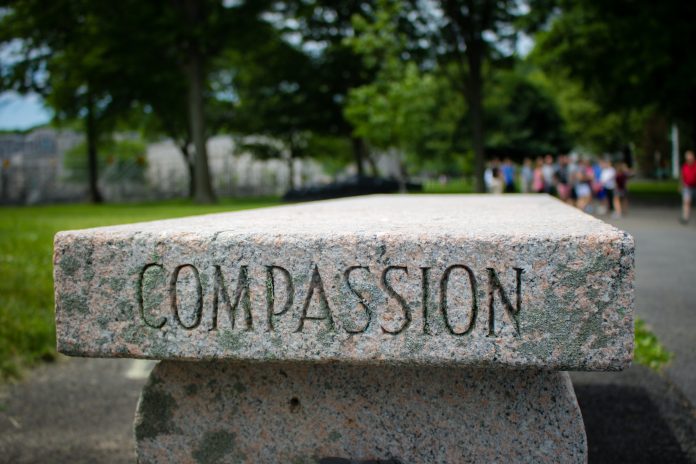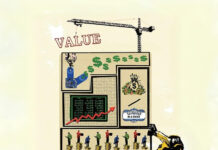Abstract
The purpose of this research paper is to draw a blueprint to build a compassionate global society. It explains compassion and defines compassionate leadership. It outlines the characteristics of compassionate leaders. It introduces soft leadership that flows from the fountain of compassion. It illustrates with inspiring examples of Mahatma Gandhi, Martin Luther King Jr, Mother Teresa, and Dalai Lama. It shares a striking story on Mahatma Gandhi’s compassionate leadership. It offers tools and techniques to be compassionate with others. It enlightens that life is short and make it sweet. It implores you to convert your mindfulness into kindfulness to excel as an ethical and compassionate leader. It concludes that there must be coordinated and integrated efforts from all stakeholders including individuals, intellectuals, and international bodies to craft a vision and build a compassionate global society.
Introduction
“Love and compassion are necessities, not luxuries. Without them, humanity cannot survive.” —Dalai Lama
Compassion involves caring for others without any reciprocal response. It emphasizes giving without expectations of getting something in return. Thomas Merton quoted, “Compassion is the keen awareness of the interdependence of all things.” Compassion is culture-specific because what is considered compassion in one culture may not be considered in other cultures. It is different from etiquette and manners. There is a thin line separating etiquette and manners. Etiquette is a set of rules we live by while manners are the way we put those rules into effect. Compassion is different from empathy. Dalai Lama differentiated, “Empathy is the desire to know the other person. Compassion is to act on that knowledge with positive intent.”
Compassion means caring for others by ignoring their own interests. Compassion means keeping others’ interests paramount by subordinating your personal interests. Compassion is not a weakness. Kahlil Gibran rightly remarked, “Tenderness and kindness are not signs of weakness and despair but manifestations of strength and resolution.” Compassion is all about genuinely caring for your people. It is handholding them without expecting anything in return. Compassion commands great inner strength, courage, and power. It is one of the greatest gifts humans receive from God. But how many of us demonstrate and exercise compassion is a million-dollar question.
People often confuse between compassion and sympathy. Both are different indeed! Sympathy is external, feeling sad about others. In contrast, compassion comes from the core of the human heart. It is considered the highest expression of humanness. It is a state of consciousness and distillation of all the virtues.
Compassion Types
“Our human compassion binds us to one another – not in pity or patronizingly, but as human beings who have learned how to turn our common suffering into hope for the future.” —Nelson Mandela
Paul Ekman[1] author of Moving Toward Global Compassion outlines in his book two types of compassion—proximal and distal. He differentiates them as follows: “We’re all familiar with proximal compassion: Someone falls in the street, and we help him get up. That’s proximal compassion: where we see someone in need and we help them. But, when I used to tell my kids, “Wear a helmet,” that’s distal compassion: trying to prevent harm before it occurs. And that requires a different set of skills: It requires social forecasting, anticipating harm before it occurs, and trying to prevent it. Distal compassion is much more amenable to educational influences, I think, and it’s our real hope.” There is more need for distal compassion globally.
Soft Leadership Flows from the Fountain of Compassion
“The purpose of human life is to serve, and to show compassion and the will to help others.” —Albert Schweitzer
Compassion is one of the unheralded characteristics of leaders. However, we seldom find leaders with compassion currently. Unfortunately, most leaders are busy with promoting and protecting their personal and professional interests ignoring others’ interests.
It is a well-admitted fact that compassion builds loyalty and loyalty builds trust. Soft leaders connect with others through trust. Compassion and empathy make the difference between a leader people want to follow or one they need to follow.
Through compassion, soft leaders can maximize their people and organizations. The real leaders are the ones who encourage others; take care of others, and empathize and demonstrate compassion with others. Only such leaders can influence and maximize the potential of their people thus bringing the best out of them. The slogan is when you maximize your people, you maximize your organization. And it is possible through soft leadership.
Martin Luther King Jr. once said, “Everybody can be great because anybody can serve. You don’t have to have a college degree to serve. You don’t have to make your subject and verb agree to serve. You only need a heart full of grace. A soul generated by love.” A soft leader must be a well-rounded personality. We cannot expect someone to be a good leader without being compassionate with followers. Compassion is a key to ministering to people. Compassion makes a lot of difference in making leaders as soft leaders. Soft leadership flows from the fountain of compassion.
Everyone talks about becoming something big, not of becoming a worthy citizen. Why do society and parents create such a mindset in people? Why should not we think of becoming worthy citizens, or virtuous persons, or helpful persons to society? Think what Dalai Lama said, “If you want others to be happy, then practice compassion. If you want to be happy, then practice compassion.”
Compassionate Leadership
“I have just three things to teach: simplicity, patience, compassion. These three are your greatest treasures.” —Lao Tzu
Currently, there is a strong need for compassionate leadership than any other leadership style globally. Compassionate leadership can be defined as the process of alleviating pain and suffering of others by empathizing and expressing with them. It blends both hard and soft skills with a tilt toward soft skills. It requires a new mindset, toolset, and skillset to excel as compassionate leaders.
Most people share their happiness and success but only a few are prepared to understand others’ pain and suffering. It is the compassionate leaders who understand the pain and suffering in others and endeavor to alleviate them with their kindness. The religious leaders including Lord Jesus and Buddha are compassionate leaders. Political leaders including Mahatma Gandhi and Martin Luther King Jr are compassionate leaders. Mother Teresa is the mother of compassion and Dalai Lama is the father of compassion. All these leaders have changed the face of the world with their compassion.
Empathetic leaders feel the emotional pain of others. They take appropriate actions to alleviate others’ pain and suffering. They look at the world from the perspective of others. In contrast, compassionate leaders are kind to others. In The Mind of the Leader, authors Rasmus Hougaard and Jaqueline Carter of the Potential Project, report that three mental qualities stand out as being foundational for leaders today: Mindfulness, Selflessness, and Compassion. They call it MSC Leadership. All three work together and enrich others.
Compassionate leadership is more needed in the current complex world because people have become very busy with their personal, professional, and social challenges. People are in the rat race without allocating any time to analyze themselves and identify others’ challenges.
Characteristics of Compassionate Leaders
“Compassionate people are geniuses in the art of living, more necessary to the dignity, security, and joy of humanity than the discoverers of knowledge.” —Albert Einstein
Usually, leaders lead with the head, heart, and gut but the compassionate leaders lead more with their kind heart. They are a breed apart. They have an unconventional mindset to resolve conflicts and overcome crises. Here are some of the characteristics of compassionate leaders. They lead by example, ethics, and etiquette. They have tremendous mental, emotional and spiritual energy and enthusiasm. They involve actively and communicate effectively. They express their emotions and get along with others with emotional intelligence. They manage their moods and emotions and lead others’ moods and emotions. They keep practices before the procedures. They keep others’ interests above their interests. Above all, they are kindhearted.
Mahatma Gandhi’s Compassionate Leadership
“Compassion is a foundation for sharing our aliveness and building a more humane world.” —Martin Lowenthal
Mahatma Gandhi was a compassionate leader whose heart was filled with tons of compassion. He empathized with the people of all religions and faiths and respected them. He was an empathic leader who could step into the shoes of others and understand from others’ perspectives. Once he was traveling in a train, and he was standing at the door enjoying the beautiful scenery of India. One of his chappals slipped away and fell from the train. He threw the other chappal as well so that the finder can benefit as he would have a pair instead of just one chappal. Keeping one chappal with him would be of no use to him or the finder. It shows his empathy and compassion. Mahatma Gandhi moved with untouchables in India and gave them due respect. He said, “Compassion is a muscle that gets stronger with use.” Compassion is an integral characteristic of soft leadership. Compassion differentiates soft leaders from other leaders. It helps connect with others easily.
How to be Compassionate with Others?
“Be kind, for everyone you meet is fighting a battle you know nothing about.” ―Wendy Mass, The Candymakers
To be compassionate with others, you must have self-knowledge first. Noted psychologist Carl R. Rogers claimed that self-discovery is the basis of psychological health and success. After treating thousands of patients, he concluded that one central issue lies behind almost every problem—a lack of self-knowledge. Second, you must empathize with others. When you empathize most conflicts in the world can be averted. Third, you must have the heart to add value to others. Above all, you must walk your talk like a compassionate leader. Here are some tips to be compassionate with others.
- Say hello to people when you meet them. Make them feel important.
- Talk to people from different generations. Take the initiative to meet strangers and talk to them. Identify specific special traits and elevate them. Ensure that they treat it as a compliment rather than flattery.
- Don’t interrupt others when they speak to you. Be an attentive and empathetic listener.
- Be tolerant of others’ opinions. Respect their opinions. Agree to disagree.
- Apologize when you are wrong. Remember that to err is human.
- Be kind to everyone. Don’t remind the mistakes of others. Forgive their mistakes because it requires a huge strength to forgive others.
- Forget unpleasant events and experiences. Remember, life is great!
- Avoid criticizing, complaining, and condemning others.
- Visualize positive and speak positively.
- Remember three golden rules: see no evil, speak no evil, and hear no evil.
- Make it a practice to help at least one person every day.
- Hold your hand for the needy. Invest your time with the less privileged because the biggest gift you can offer to others is your precious time.
- Don’t expect anything from others. Make a difference in the lives of others to leave your footprints.
- Be a giver, not a taker because there is the least competition for givers in the world.
- Volunteer to serve others. Participate in non-profits to influence and impact others.
Write thank-you notes to make people feel important. For instance, Franklin D. Roosevelt wrote personal thankyou notes to mechanics and acquaintances. He remembered their names and said one of the most important ways of gaining goodwill was by making people feel important. Remember the names of the people to connect with them. Remember that the important thing for any person is remembering his/her name. For instance, Napoleon III boasted that in spite of all his royal duties he could remember the name of every person he met. He had people repeat their names and sometimes spell them. Then he associated their names with other things. Remember these tips to make your presence felt and make a difference in the lives of others.
Convert Your Mindfulness into Kindfulness
“If there is any kindness I can show or any good thing I can do to any fellow being, let me do it now, and not deter or neglect it, as I shall not pass this way again.” —William Penn
Life is short. Hence, make it sweet. Help as many people as possible. We carry nothing from this world when we depart. Be kind to others because what goes around comes around. Convert your mindfulness into kindfulness to excel as an ethical and compassionate leader to build a better world.
Create a Compassionate Global Society
“The purpose of life is not to be happy. It is to be useful, to be honorable, to be compassionate, to have it make some difference that you have lived and lived well.” —Ralph Waldo Emerson
Our global society is not one society. Although we boast in the letter that we are one global society but in spirit, we are in two worlds—rich and poor. Hence, it is essential to bridge the gap between them to build one global society that is a compassionate global society. Let us declare the 21st century as the century to build a compassionate world. It requires moral and ethical foundations to build a compassionate world. It is impossible to create a utopian world but it is very much possible to create a compassionate world. To conclude, there must be coordinated and integrated efforts from all stakeholders including individuals, intellectuals, and international bodies to craft a vision and build one global society—Compassionate Global Society.
“My message is the practice of compassion, love, and kindness. These things are very useful in our daily life, and also for the whole of human society these practices can be very important.” —Dalai Lama
About the Author
 Professor M.S. Rao, Ph.D. is the Father of “Soft Leadership” and Founder of MSR Leadership Consultants, India. He is an International Leadership Guru with thirty-nine years of experience and the author of forty-nine books including the award-winning ‘See the Light in You’ URL: https://www.amazon.com/See-Light-You-Spiritual-Mindfulness/dp/1949003132.
Professor M.S. Rao, Ph.D. is the Father of “Soft Leadership” and Founder of MSR Leadership Consultants, India. He is an International Leadership Guru with thirty-nine years of experience and the author of forty-nine books including the award-winning ‘See the Light in You’ URL: https://www.amazon.com/See-Light-You-Spiritual-Mindfulness/dp/1949003132.
References
[1] https://greatergood.berkeley.edu/article/item/paul_ekman_global_compassion
https://www.amazon.com/dp/1949003132
http://www.amazon.com/Soft-Leadership-Make-others-important/dp/8175156538
https://www.amazon.com/Professional-Ethics-Etiquette-Ferguson-Library/dp/081607772X
https://www.amazon.com/Mind-Leader-Yourself-Organization-Extraordinary/dp/1633693422
https://greatergood.berkeley.edu/article/item/paul_ekman_global_compassion


































